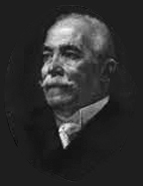

We should emphasise that the enormous length of the História Orgânica e Política do Exército Português , in its numerous volumes, offers, in volumes X to XIII, unpublished studies of great importance for shedding light on the events related to the French invasions, which took place between 1801 and 1811, in Portuguese territory, dealing with the broadest range of topics related to the action of the French and English armies in Portugal.
By way of example, we would like to highlight the subject of the engineering that was part of Junot ’ s army in the invasion of 1807. There , we find information on the history of the Portuguese Legion in Napoleon ’ s service, biographies of Beresford and Soult, studies on Portuguese freemasonry at the time of the invasions, the defences of Lisbon and the Lines of Torres Vedras. Among this precious collection, Junot ’ s Diary in Portugal stands out, i.e. , the set of letters sent by this military leader to Napoleon from 10 October 1807, when he and his army were still on their way to Lisbon, until 7 June 1808, when the Convention of Sintra took place , and Junot left Portugal. This set of documents was published in French and should be highlighted among the studies that Cristóvão Ayres has left us in his extensive and valuable work.
In his Teoria da Historia da Civilização Militar [ Theory of the History of Military Civilisation ] , he tries to show “ how the great eras of humanity have bee n memorable periods of struggle” , corresponding to the following individuals: Seven I and Ramses II, with Nebuchadnezzar, with Cyrus and Darius I, with Themistocles, with Alexander, with Epaminondas and Xenophon, with Mari us and Julius Caesar, with Charlemagne, with Gonçalo de Córdova, with Afonso de Albuquerque, with Charles V, with Gustavo Adolfo and Turene , with Frederick II, with Napoleon I, with Moltke, with Kuroki’ (4 th ed., 1915 , p. 8). The concept of progress is very present in his narrative: “ ... The innate instinct of sociability, common to other animals, the interest in securing and protecting the acquisitions already made and the family already constituted, lead him [man] to congregate with units of collective strength, and thus , security and peace are established through mutual respect and mutual conveniences. Once this state of security has been acquired, trade relations are naturally forged ; products are exchanged between towns that offer different merchandise according to their particular skills, the raw materials they have at their disposal, or even the particular crops in their soil . The artistic instinct which, like that of conservation, reproduction and religion, has been apparent since the earliest beginnings of humanity, gradually develops and, from scale to scale, from step to step, produces true wonders!” (p. 12).
This work is financed by national funds through FCT - Foundation for Science and Technology, I.P, in the scope of the projects UIDB/04311/2020 and UIDP/04311/2020.
